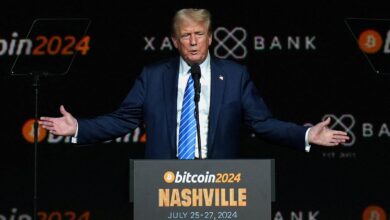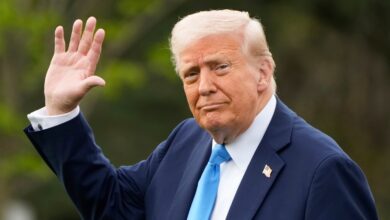‘We will not fight back’: South Korea’s acting president on US tariffs | World News

South Korea will not retaliate against newly imposed US tariffs, Acting President Han Duck-soo said in an interview with the Financial Times. Talking about the country’s “horical debt” to the United States, Han made clear that Seoul is approaching upcoming trade talks with President Donald Trump adminration in a spirit of cooperation rather than confrontation.The remarks come at a critical juncture in US-South Korea relations, as new tariffs and ongoing global trade tensions threaten to strain the long-standing alliance between the two countries.
Han, a veteran technocrat who stepped in as acting president following the impeachment and removal of President Yoon Suk Yeol earlier this month, framed his adminration’s response to Washington’s tariffs as one rooted in horical alliance and mutual benefit.
Story continues below this ad
Han credits US for South Korea’s growth and wealth
South Korea has long been regarded as one of Washington’s closest strategic allies in Asia, not only in security matters but also through extensive economic and technological cooperation.
“The role of the US was huge in making Korea what it is now,” Han said. “After the devastation of the Korean War, the United States gave us aid, technology transfer, investments, and security assurances,” which he credited with helping make South Korea “a very comfortable investment environment for foreigners.”
“Our industrial prowess and our financial development and our culture and growth and wealth are very heavily due to the help from the United States,” he added.
Tariffs target key South Korean sectors
The Trump adminration announced a 25% “reciprocal” tariff on South Korean goods earlier this month, despite the exence of a free trade agreement (FTA) between the two countries. The move took many in Seoul surprise and raised concerns about the durability of the trade pact, which had largely eliminated tariffs on American products entering South Korea.Story continues below this ad
The new tariffs affect several of South Korea’s most globally competitive sectors. Automotive giants Hyundai and Kia have been hit a separate 25% levy targeting foreign automakers. Meanwhile, chipmakers and pharmaceutical companies are under threat of further tariffs under a national security probe initiated the US.
These actions come amid heightened scrutiny of South Korea’s growing trade surplus with the US, which hit a record $55 billion in 2024—up significantly from previous years as the US overtook China to become South Korea’s largest export market.
Han wants to find “solutions which are more win-win for both, rather than taking their actions as the objective against which we should fight back,” he said. In response to the growing trade imbalance, Han indicated that Seoul is open to discussions aimed at reducing its surplus with the US. Among the measures being considered are increased purchases of American liquefied natural gas and commercial airliners.
He also mentioned expanded cooperation in sectors such as naval shipbuilding, which he said could contribute to strengthening military alliances.Story continues below this ad
Non-tariff barriers
Beyond tariffs, Washington has long raised concerns about non-tariff barriers in South Korea, which US officials argue put American companies at a disadvantage. These include emissions regulations that impact foreign carmakers, opaque pharmaceutical pricing systems, limited beef imports, and digital regulations that affect content providers like Netflix.
Han signaled a willingness to address these grievances in upcoming negotiations. Some industries “may suffer some problems,” he said, but broader liberalisation of trade between the two countries would “increase the welfare of the Korean people.”
With President Yoon impeached over his failed attempt to impose martial law, the country is set to hold a snap presidential election in June. Han, as prime miner and acting head of state, is leading negotiations during this transitional period.
(With inputs from Financial Times)







